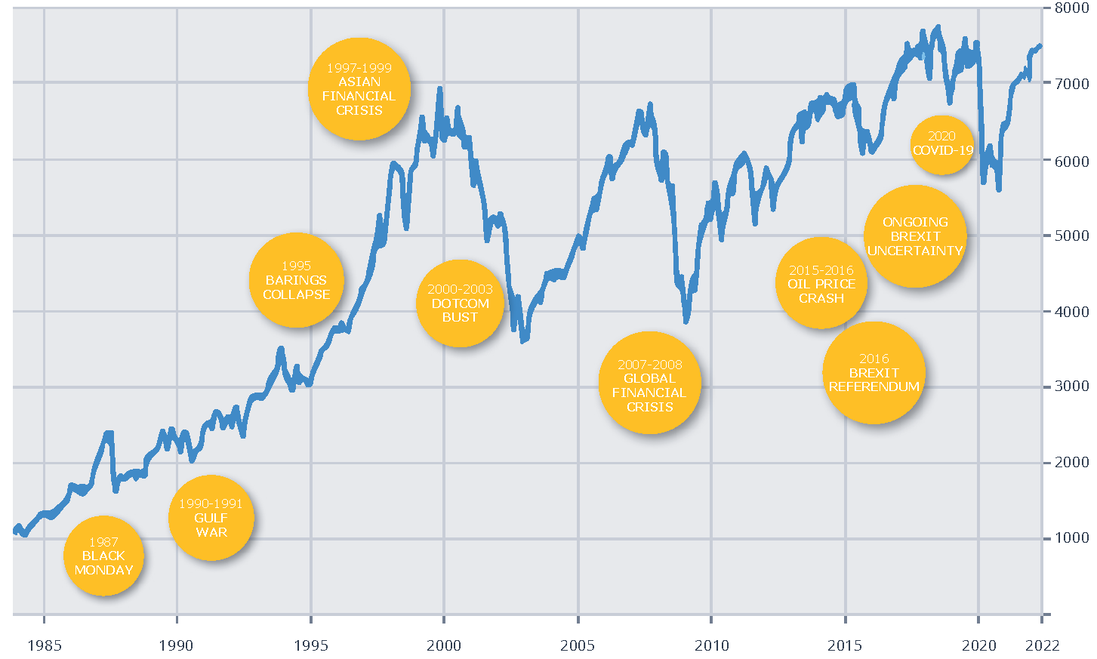Finance
Stock Investing in Times of Economic Uncertainty: Effective Strategies
In times of economic uncertainty, investing in stocks can be both challenging and rewarding. Market volatility, fluctuating economic indicators, and geopolitical events can create a turbulent environment for investors. However, with the right strategies, you can navigate these uncertainties and potentially capitalize on opportunities that arise. This guide will help you understand effective strategies for investing in stocks during periods of economic instability, offering insights to help you make informed decisions and protect your investments.

1. Understand the Economic Environment
Before making any investment decisions, it’s crucial to have a solid understanding of the current economic environment. Economic uncertainty can stem from various factors, including:
- Recession Risks: Economic downturns can lead to lower corporate profits and reduced consumer spending, affecting stock prices.
- Inflation: High inflation can erode purchasing power and impact company earnings, particularly for those with fixed revenue streams.
- Interest Rates: Central banks may adjust interest rates in response to economic conditions, influencing borrowing costs and investment returns.
- Geopolitical Events: Political instability, trade wars, or international conflicts can impact global markets and investor sentiment.
Impact on Stock Investments:
- Economic uncertainty can lead to increased market volatility, affecting stock prices and investment performance. Understanding these factors helps you make informed decisions and adjust your investment strategy accordingly.
2. Diversify Your Portfolio
Diversification is a fundamental principle of investing that involves spreading your investments across different asset classes, sectors, and geographic regions. This strategy helps reduce risk and minimize the impact of adverse market conditions on your overall portfolio.
Diversification Strategies:
- Sector Diversification: Invest in a variety of sectors (e.g., technology, healthcare, consumer goods) to protect against sector-specific downturns.
- Geographic Diversification: Include international stocks in your portfolio to mitigate risks associated with domestic economic conditions.
- Asset Class Diversification: Combine stocks with other asset classes such as bonds, real estate, and commodities to balance risk and return.
Benefits of Diversification:
- Diversification reduces the risk of significant losses from any single investment and provides a more stable overall portfolio performance, especially during times of economic uncertainty.
3. Focus on Quality Stocks
During economic instability, focusing on high-quality stocks can be a prudent strategy. Quality stocks are typically characterized by strong financial fundamentals, stable earnings, and a solid track record of performance.
Characteristics of Quality Stocks:
- Strong Balance Sheets: Companies with low debt levels and healthy cash flow are better positioned to weather economic downturns.
- Consistent Earnings: Look for companies with a history of stable and growing earnings, which can provide a buffer against economic fluctuations.
- Competitive Advantages: Companies with strong market positions, unique products or services, and effective management are more likely to sustain profitability.
Investment Considerations:
- Quality stocks tend to be more resilient during economic downturns and may provide more stable returns compared to lower-quality stocks or speculative investments.
4. Adopt a Long-Term Perspective
Investing with a long-term perspective can help you navigate periods of economic uncertainty and capitalize on the eventual recovery of the market. Short-term market fluctuations can be unsettling, but maintaining a long-term view can help you stay focused on your investment goals.
Long-Term Investment Strategies:
- Regular Contributions: Continue investing consistently, regardless of market conditions. Dollar-cost averaging can help you build wealth over time and reduce the impact of market volatility.
- Reinvest Dividends: Reinvesting dividends can enhance your long-term returns by taking advantage of compound growth.
- Avoid Panic Selling: Resist the urge to sell investments in response to short-term market declines. Instead, focus on your long-term goals and investment strategy.
Benefits of a Long-Term Perspective:
- A long-term approach helps you ride out market fluctuations and benefit from the overall growth of the stock market, which historically trends upwards over extended periods.
5. Consider Defensive Stocks
Defensive stocks, also known as non-cyclical stocks, are shares of companies that provide essential goods and services, such as utilities, healthcare, and consumer staples. These companies tend to perform relatively well during economic downturns because their products and services are always in demand.
Characteristics of Defensive Stocks:
- Stable Demand: Defensive stocks are less sensitive to economic cycles and consumer spending patterns.
- Reliable Dividends: Many defensive stocks offer consistent dividends, providing a stable income stream even during economic uncertainty.
Investment Opportunities:
- Investing in defensive stocks can help stabilize your portfolio and provide a buffer against market volatility, making them a valuable component of a diversified investment strategy.
6. Monitor and Adjust Your Portfolio
Regularly monitoring and adjusting your portfolio is essential for adapting to changing market conditions and maintaining alignment with your investment goals.
Portfolio Management Tips:
- Review Performance: Regularly review the performance of your investments and assess whether they are meeting your expectations and goals.
- Rebalance Your Portfolio: Rebalancing involves adjusting your asset allocation to maintain your desired risk level and investment strategy.
- Stay Informed: Keep up with economic developments, market trends, and changes in your investments to make informed decisions.
Benefits of Active Management:
- Ongoing monitoring and adjustment help you respond to market changes and ensure your portfolio remains well-positioned for your financial objectives.
Conclusion
Investing in stocks during times of economic uncertainty requires careful planning and strategic decision-making. By understanding the economic environment, diversifying your portfolio, focusing on quality stocks, adopting a long-term perspective, considering defensive stocks, and actively managing your investments, you can navigate the challenges of a volatile market and work towards achieving your financial goals.
At zgladnews, we are committed to helping you make informed investment decisions and providing valuable resources to support your financial journey. For more information and guidance on stock investing and other financial topics, explore our resources and stay connected with our expert team.

